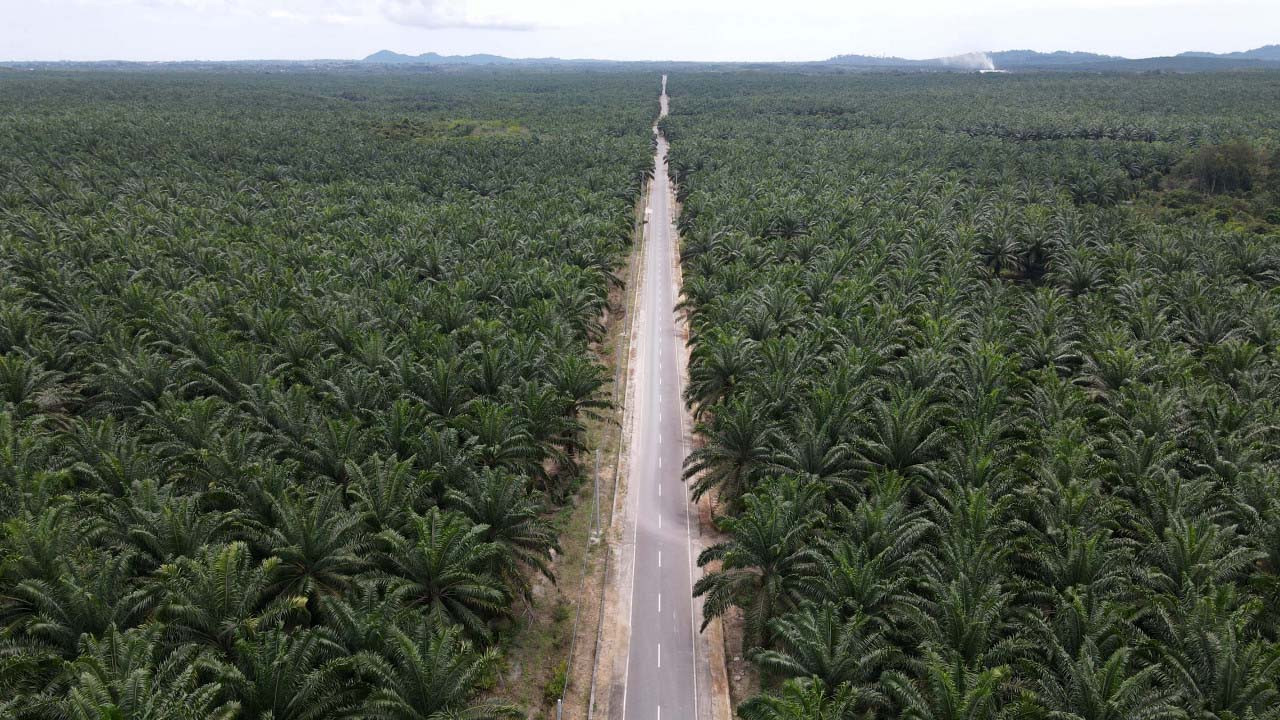Awaiting Switzerland’s decision on Indonesian palm oil
Revoking the clause on palm oil in the I-EFTA CEPA may set a detrimental precedent for other trade agreements that Indonesia is party to.
Change Size
 An oil palm plantation in Bulutumbang, Belitung. (JP/Donny Fernando)
An oil palm plantation in Bulutumbang, Belitung. (JP/Donny Fernando)
O
n March 7, Switzerland will have a federal referendum on whether to accept or reject clauses pertaining to palm oil in the Indonesia-European Free Trade Association Comprehensive Economic Partnership Agreement (I-EFTA CEPA), a trade agreement involving Indonesia and four non-EU countries, namely Switzerland, Norway, Iceland and Liechtenstein.
According to the Swiss constitution, 50,000 signatures are required to challenge a legislative product through a referendum. The detractors of the I-EFTA CEPA have collected more than 59,000 signatures, and therefore, the referendum to annul the provisions on palm oil within the I-EFTA CEPA can be held.
In a rare occasion, the name of a country other than Switzerland, i.e. Indonesia, will be written on the ballot paper.
The Swiss government has constantly supported the I-EFTA CEPA. Out of eight political parties in the country’s parliament, five are in favor of the I-EFTA CEPA. Furthermore, the Swiss government has acknowledged the benefit of the I-EFTA CEPA for the Swiss economy, primarily for boosting trade and investment.
About 77.5 percent of Switzerland’s current exports to Indonesia will enjoy zero tariffs if the I-EFTA CEPA comes into force. Should the I-EFTA CEPA fail to be implemented, it will also affect the credibility of the Swiss government in future international trade negotiations.
The initiator of the referendum, an alliance led by Swiss farmers’ union Uniterre and winegrower Willy Cretegny, has accused Indonesia’s palm oil industry of maintaining unsustainable practices such as deforestation and worker exploitation. The indictment has been refuted by Indonesia, including by Indonesian Ambassador to Switzerland Muliaman Hadad, who stressed that the standard of Indonesia Sustainable Palm Oil (ISPO) is significantly stricter than the global standard of sustainability stipulated in the Sustainable Development Goals (SDGs).
Palm oil is indeed a highly strategic commodity for Indonesia. It supports the livelihoods of more than 16 million Indonesian smallholders and workers. Palm oil’s export value of US$14.7 billion accounts for 8.8 percent of Indonesia’s total exports.
The palm oil provision, therefore, must stay in the I-EFTA CEPA. Without palm oil, the I-EFTA CEPA will deviate from what was agreed upon from the start. Even though palm oil contributes less than 0.1 percent of Indonesia’s total exports to the EFTA, revoking the clause on palm oil in the I-EFTA CEPA may set a detrimental precedent for other trade agreements that Indonesia is a part of.
Annulling the I-EFTA CEPA will also be a missed opportunity for Switzerland. While Indonesia’s market accounts for only 0.33 percent of Switzerland’s trade with the world, there is a geopolitics element that needs to be considered. With the rise of Asian countries as new global economic pillars boosted by demographic bonuses, missing out on Indonesia’s market would translate into a handicap for Switzerland. This is especially true in terms of the investment race in Regional Comprehensive Economic Partnerships (RCEP), with Asia being the largest (30 percent of global GDP) and fastest growing (7.4 percent GDP growth) trading bloc in the world.
From the starting point of the agreement, the I-EFTA CEPA has never been solely about trade volume. The EFTA represents only 0.70 percent of Indonesia’s trade with the world. The total trade between Indonesia and Switzerland totals $1.44 billion, relatively balanced two-way trade with a surplus of $44 million for Indonesia (2019).
Instead, the I-EFTA CEPA speaks more of market access, transfers of technology and investment, all of which can be covered under bilateral treaties.
A poll released by Schweizer Radio und Fernsehen (SRF) on Feb. 24 shows that 52 percent of Swiss citizens support the I-EFTA CEPA. Of those who do not, 7 percent remain undecided (with a 2.8 percent margin of error).
Nevertheless, Indonesia and Switzerland should be prepared if the final result shows otherwise. Both countries should strive harder to strengthen their bilateral cooperation and may pivot to bilateral agreements, including through the ongoing Bilateral Investment Treaty (BIT) negotiation, should the referendum work against both countries’ interests.
What remains is to identify the lesson that can be applied in the future.
First, there is a need to approach stakeholders in other countries as a part of trade negotiations. With the increasing influence of the general public in policy making, it is necessary to strengthen public diplomacy to win constituents’ hearts.
Second, it is imperative to strengthen the image of developing countries’ commodities. ISPO, for instance, has held palm oil produced in Indonesia to a higher sustainability standard than the SDGs. Indonesia must ensure that this standard is made known to the international community.
Lastly, it is important to manage the reality of existing business competition with regard to the commodity. Some European countries are producers of direct competitors to palm oil. Therefore, it is not a surprise that Indonesia’s palm oil still faces challenges entering the European market, and it seems we have to live with that.
As a final note, regardless of the result of the referendum, Indonesia and Switzerland must be prepared to capitalize on the situation. We have to respect Swiss democratic processes as the whole world should respect Indonesia’s democracy too.
***
The writer is a foreign policy analyst and lecturer at Paramadina University, Jakarta.









